Our Body, Counselling London
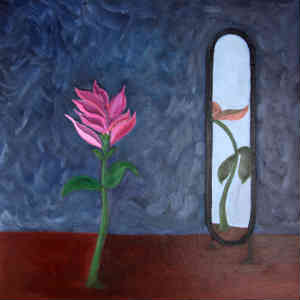
How We Feel About Our Ever-Changing Body Our body is closely linked to our self-identity and personality, yet it is not our personhood, who we are - our Self. Our bodies change. As the quote goes: "No man ever steps in the same river twice, for it's not the same river and he's not the same man" (Heraclitus), our body is an experience - a process. There are as many bodies as there are people in the world - each unique. We are born with one body where wanting to feel, look better may be understandably important and matter to us (and we can change our bodies, appearance in multiple ways). Some of us may struggle to accept, trust, be natural and comfortable with and value our ever-changing body how it is - our nakedness (maybe affecting our sexual expression), its condition, tone, colour, shape, size, weight, appearance, state of health, especially if we habitually compare our body or appearance with others (or emotionally eat for comfort). Creating body image-related stress, we may have ageing insecurities, yearn for young, tight flesh, yet physical beauty fades and our inner qualities live on. We may base our worth or identity focused on our body & how we look, as if this fully defines us ignoring our intrinsic self-worth, real self. In a looks-dependent and media-influenced society, where people over-emphasise physical appearance, comments made about our body (even those ones made way back in childhood) can deeply affect us and we may not always like what we see in the mirror, begin to fret about our body. Yet we (our innateness, Self) are more than the mirror we see. As we grow older, through the passage of time, our body, metabolism and our looks inevitably change (see also Ageing, Elders & Maturity - Counselling London). We don't necessarily always have to love our body, but we can improve our relationship with our body by letting go of any negative self-talk about our body, finding gratitude for what our body allows us to do, accepting and embracing our forever-changing body for what it is and feel more comfortable within it. We may have believed our body was a machine, and we could control it. Yet our body is also fragile and subtle, no matter what our age. Letting go of how we used to look, should look and what we'd change, embracing our body, honouring, caring for it - valuing, respecting and looking after our body, being anchored, grounded, centred, comfortable in our own skin, feeling we are enough and using our body properly may be challenging. Our emotional experiences, inner child live in the body - our language of feeling and the way we relate with our body can be very separate, unrelated to other aspects of our self - our feelings, mind, sexuality, spirituality, as if our body is not inter-connected with these aspects of us. We can choose to define our worth (our body image, purely on how we look) externally or internally (e.g. liking our self, our inner being & qualities, all of who we are - our positivity, reliability, compassion, sense of humour, kindness, creativity, sexual energy, etc.). Yet if we see beauty as only skin deep, our emphasis is only external, especially as we get older, we can become stressed and feel insecure inside. Being comfortable inside our own skin - beauty within, who we are - our personality, knowing, affirming and expressing our good qualities, skills & limitations, accepting (including our flaws), appreciating ourselves - our positive qualities, shifting our focus to the world around us may be challenging. And although we would like to be seen as refined human beings, we may dismiss our shadow, disease, illness, animal qualities, or ignore our senses. Body image counselling & body image therapy can offer a space to discuss any negative body image concerns (or unhelpful messages we picked up about our body when younger), which may be linked to our source of esteem, alongside integrating our internal qualities and our own personal empowerment. The counselling for body image also explores how the negative, positive energy of our thoughts affects our physical wellbeing, vitality.
It is health that is real wealth and not pieces of gold and silver.Mahatma Gandhi
Body Shaming Anybody can be the target of body shaming, often from peers, maybe parents. We too can be critical of our body - shaming ourself (how comfortable we feel about our own nakedness can affect our sexual confidence. Some people criticise our body indirectly, without our knowledge, whereas others do so in front of us. Body shaming is when we are criticised based on the appearance, shape, size of our body, often through judgement, comparison to others. It can be subtle and covert or blatant and overt. Body shaming can be a form of bullying, abuse. Body shaming may have happened a long time ago,or be happening now, and we may be carrying shame, humiliation.
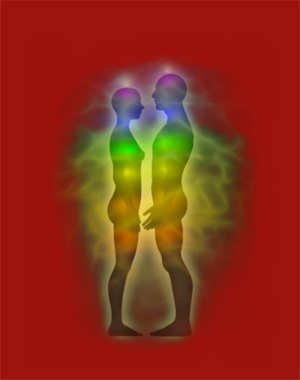
Our Looks, Body Image Anxiety, Needing To Enhance Our Beauty How we feel about our body can be closely related to our mood, esteem, insecurity, need for external validation. Dissatisfied or preoccupied with what's wrong with our body, the flaws, that we haven't got a body ideal, we may come from the belief that our body needs fixing and seek a body issues counsellor. Some people choose to define their beauty, sense of security purely on how they look, their body image yet this form of skin-deep beauty fades (see also Ageing, Elders & Maturity - Counselling London) and our very being, deeper qualities live on - our reliability, compassion, kindness, vitality, joy, warmth, passion, vulnerability and tenderness, courage, goodwill, curiosity, sense of humour, inner child, creativity, positivity, sexual energy, generosity of spirit, spirituality. Some of us may be addicted to beauty, glamour. We may want to emanate our own beauty from within - our inner qualities, intrinsic worth, real self. Appreciating ourself for all of who we are, beauty inside and out there in the world may be missing. As for attracting others, do we only want a person who cares more about how we look, than who we are? (Our inner beauty emanates from within and when we are in touch with this, we gain confidence, esteem, self-respect, self-worth.) We may have a physical feature, which we find difficult to come to terms with. Sensing the inner landscape of our body from the inside, how it feels (maybe warm or cold, numb or alive, tense, agitated, overexcited or relaxed, painful or painless, heavy, loose, soft or sharp, light or tight), valuing all our senses can help give us a felt experience and great understanding of our body as a living, breathing instrument - the vehicle for our self. Appreciating how well our body is working - valuing, respecting the body for what it does for us, how it keeps us alive, may be more significant. Having gratitude for what our body does (rather than what it doesn't or how it looks) can support us. The counselling for body image helps explore what else we are really feeling - our real emotions, what is really going on besides our body judgements. (Cultural, societal, social media influences, alongside childhood experiences, messages or so called throw away comments we pick up from family, friends may also influence us - see also Unhealthily Comparing Us With Others.) Emotional eating, comfort eating, compulsive eating may be a concern for some.
Lose your mind and come to your senses.Fritz Perls

Our Facial Expressions We can treat our face well, cosmetically look after it. Yet we wear our thoughts on our face. And with what's going on in our head, we can look after the thoughts we think. The thoughts we select are reflected on our face. Our expressions change as we think about something stressful, amusing, embarrassing, sad, happy. Changing our thought changes our face, facial expressions, so weaning out any unnecessary thoughts, giving our mind space, may show up on our face. Our feelings can also be expressed through our face. (See also The Way Our Body Non-Verbally Speaks, Our Demeanour, Body Language, How We Carry, Express Ourself - Embody, Form Ourself In Our Body)
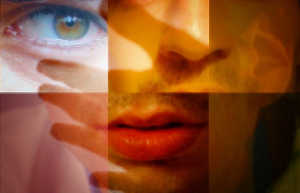
Our Senses & How We Experience The World As the gestalt therapist Fritz Perls's remarks, sometimes our mind can trap us with unhelpful or rigid thinking patterns, that discounts our felt experiences - our senses. Through our whole body - not just our head we perceive things - giving us information about our external, internal environment and reality, yet sometimes our experience of our senses and time can be different, almost as if there is a sixth sense - everything beyond the perception of our five senses. (Thought itself can be experienced as a sixth sense.) It is through our senses that we experience colour, shape, and form where everything else can be viewed as interpretation. And through being in touch with the textural experience of all our senses and sense-making (see also Our First Relationship - Early Connections & Bonding Patterns), we know we are alive, can feel more anchored, part of nature, after all our bodies are also eco systems. We pick up other people's gestures, nuances, speech, body language through our senses & perceptions. Some of us may be highly sensitive, experiencing heightened responses to sensory information, have qualities of an empath, experience sensory overload (e.g. overly affected by light, sounds, our tears, touch, including fabrics, etc.), which may be linked to our neuro-diversity. Being in the moment, in touch with the quality and depth of our senses - listening, responding and refining them without dulling them - our textural senses - touch, sight, hearing, taste and smell - opening our heart to them, alongside our emotional senses, supports us, keep us interacting with the environment (e.g. pain, pleasure). We may want to explore our senses more deeply (e.g. it is said our eyes are our "information super-highway", "the windows to our soul", so we may want to explore what we absorb, express through our eyes, how we intentionally share a meaningful experience, a feeling). Our feelings and senses guide us, help inform our intuition, gut feelings, hunches, instinct, connected to our biology and these can be disturbed if holding past trauma - where the cells in our body hold the memories. Our senses can also support our sense of safety in our body, creativity and we can choose what we want to be influenced by. For some our senses & kinaesthetic learning (through touching, doing and practising things and moving our body) can have the potential to be underused or can overstimulate, overwhelm us. Our senses have been traditionally associated with the 5 elements, which give us life, that of:
- Air (Touch) - Can we be light like air, free of fear, worry
- Fire (Sight) - Can we positively transform what we need to (including our unwanted habits, unhelpful distractions, addictions)
- Water (Taste) - Can we flow without stagnating
- Earth (Smell) - Can we be stable when faced with challenges
- Ether (Hearing) - Can we be expansive, giving space to us & others
Visual Aids Many of us can benefit from utilising visual aids in our life - whether through to-do lists, calendars, planners. They can help structure our thoughts, be visual representations of chunks of time, tasks. We can utilise whatever works for us, drawings, pictures, colour-coding, diagrams, flowcharts, mind-mapping.
Our Biology & Instincts We may ignore, deny the qualities of our biology (see also Reflecting Upon Our Mortality) - the natural process of being human, the energy of our animal and basic survival instinct (albeit primitive at times), the flesh and blood of our basic instincts and biological reality of who we are. We all have a genetic inheritance influencing and governing aspects of our life, our physicality and psychological development. These genes interact, turn on and off in relationship to the external environment and internal environment - how we think, feel, envision, etc. Epigenetics research demonstrates our emotions regulate our biology, change our gene expression also through environmental experiences (see also Free Will & Relationship To Fatalism, Preordainment, Determinism, Indeterminism & Randomness, Karma, Nature & Nurture - Dilemmas, Challenges). Certain emotions, reactions can be experienced as biological responses (often powerfully sensed physically from the vitality of our body - see also Our Painbody) - our shame, fear, being surprised, disgusted. How these alongside our intuition, instincts affect us can be explored in the counselling or psychotherapy. Our basic and sometimes base aspect of ourself can be a disowned shadow part of us, affecting what consciously, unconsciously arouses us, overwhelms us, biologically drives our feelings, thoughts and behaviours (see also Unwanted Habits & Addictions Counselling London). This may include our responses (e.g. emotional stress, fear and anxiety) to food, danger, threat and aggression, loss of status, power, territory, loneliness, pain, excitement, sex and lust (see also Men & Women). And women also have their own biological clock. (Our hormones to some extent regulate & control everything in our body & influence our emotions and passions, e.g. our appetite through leptin, our stress levels through cortisol, our bonding through oxytocin.) The impact of our moods during menopause (an aspect of ageing) can be underplayed alongside the psychological impact, possibly affecting our esteem, which may bring feelings of sadness, anxiety. Counselling for menopause can also be offered. Often linked to our early bonding patterns, attachment style, these strong instincts and biological imperatives can arouse powerful responses in us (see also Physical Feelings, Somatic Reactions, Other Reactions) and can especially emerge when we are lost, stuck, tired, hungry, angry, irritable, under threat, traumatised, conflict, loss, separation affecting our nervous system and basic need for survival, safety, food, shelter, comfort, relationships, connections (see also Getting Our Basic Dependency Needs Met In A Healthy, Loving Relationship). It may be very essential to act from this instinctual place, yet other times essential to choose not to (see also Emotional Responsibility, Emotional Energy, Emotional Health, Emotional Wellbeing, Emotional Evaluation, Emotional Strength, Emotional Resilience, Emotional Intelligence, Emotional Growth, Emotional Maturity - Being Emotionally Connected). Sometimes our will can be captured by our desire. Listening to and compassionately taking charge of our instinct, arousal levels without giving them energy (creatively diverting certain instinctive energies when we need to) so we can swiftly move on, utilising our wisdom, ability to reflect, may help us to have a sense of interconnectedness, acceptance, forgiveness, allowing for any integration and healing. (see also Accessing Motivation, Taking Loving Action, Acting From Our Personal Will, Heart)
Unwell, Physical Pain, Physical ill Health It can be very challenging to respond to and manage our ill health (or even wellbeing). And ill health can present huge challenges. We may be unwell, have poor physical health, be in chronic pain, or ill with associated emotional, psychological, spiritual effects, maybe through ageing. (The Royal College Of Psychiatrists state "All healthcare tries to relieve pain and to cure, but good healthcare tries to do more. Illness is not a separate entity. We can't separate the mind and the body and its nervous system. The illness may also carry childhood trauma, relationship difficulties, or just the stresses, impact of being human in the world. Spirituality emphasises the healing of the person, not just the disease.") Raw inside, we may be sensitive, depressed, distressed, pressurised, frustrated, angry or in grief, struggling to find our way through our pain, psychosomatically affecting our whole body, mind and feelings - often negatively and sleep. In heartbreak, we may find it hard to accept what is happening, unhelpfully compare our state of health & body to what it was like before. When in pain, ill, unwell, our concept of time may change and our thoughts can tumble. We may come up against our own mortality or fear dying. Alongside our own self care, we may need to surround ourselves with supportive others, ask for care & support.
Unwell, Physical Pain, Physical ill Health - Medical Diagnosis A medical diagnosis can feel like a relief for some, a burden for others, as if we become identified by it. "Why me?" can be an understandable reaction and working through our feelings can be part of the therapy process. Our physical pain, illness diagnosis may manifest in our life, but they are not our self, our essence (see also Identifying, Disidentifying & Integrating All Aspects Of Us). It may be important to remember that our human-beingness is more than a label, condition. And when we may have a condition, medical diagnosis or be in chronic pain, this not only affects us, but others. We may wonder who, how, when & why to tell others and if so, we don't have to manage their own reactions. Counter-intuitively, when with others, we may discover we prefer laughter rather than sympathy to focus on - this can also aid muscle relaxation in the long term, reduce pain (see also Terminally Ill, Terminal Diagnosis).
Unwell, Physical Pain, Physical ill Health - Healing From Within We may not always be able to avoid pain, yet we can reduce its impact on us and our life quality. Healing, it is said, also comes from within - that we need to heal ourselves, not exclusively handover 100% authority to doctors. Alongside receiving important medical care (and the impact medication has on our emotions, moods, ability to think clearly, alongside any physical side effects), listening, tuning into what our body best needs, its messages may help us (see also Feeling Safe In our body - Connecting To Our Centre). Being in touch with what soothes us, keeping calm & open-hearted to all that is happening can also support us. Re-prioritising things, maybe re-routing our life empowering ourselves, taking responsibility for our wellness as best we can, dropping our resistance to any negative emotions we carry (see also Our Painbody), facilitates our healing process, so we don't necessarily hand over all responsibility to others to heal us. Accepting the condition of our body, being healthy & whole to whatever degree, may assist us by re-framing health as not necessarily experiencing complete physical wellbeing. Reflecting upon our journey of healing and what, if anything, we might need to learn about the context of our life, accepting (even forgiving ourselves or others if we need to) may support us. Managing any health anxiety, so it doesn't over-dominate is one thing. Yet managing pain is so individual and what helps one person, may not another (e.g. stress management, relaxation training, focused breathing, mindfulness, meditations, healthy distraction techniques, affirmations, visual imagery, imagination, massage, acupuncture, good nutrition, movement or the best form of exercise for our condition, doing small things if/when we have bits of energy, surrendering to what is, transforming our pain, if we can, to power). For some our current state of health can be a wake-up call about how we treat ourselves, our very being. And radically adapting to lifestyle changes, self-managing our care may help us, so despite our imperfections we experience adequate psychological wellbeing, general wellbeing. (Paying attention to things we don't want may be unhelpful rather than paying attention and focusing on our wellbeing and what we do want.) Being connected to how aspects of our wellness - our mind, our body, feelings, sexuality, spirit, interact may support us (alongside cleaning up any unhelpful lifestyle factors, behaviours and any psychological factors, often unconscious - where being curious about these without blaming or shaming ourselves may be insightful). Without underplaying how the body also affects the mind, we may want to check if we also allow our physical condition dictating our mental attitude, how our emotions (e.g. frustration, anxiety, fear, anger) respond to our physical condition, believing that if we unhelpfully wait for our physical condition to improve, only then so our emotional state will improve. When unwell, respecting how our body feels, taking care, being kind to ourself, making good choices towards what our body needs (e.g. maybe appropriate exercise and giving our body time to rest, recuperate, reserving our energy when we need to, re-storing our depleted energy) alongside supporting, maximising our body's health may be important. Focusing on good, positive feelings, envisioning our good health, when we are physically unwell may understandably not always come easy to us, yet supports our physical health, as does feeling safe in our body. Challenges may also include focusing on the now, the positive, activities that engage us in life.
Unwell, Physical Pain, Physical ill Health - The Intertwined Mind, Body, Relationship, Influence Of Feelings, Thoughts, Beliefs & Our Past Any stress or anxiety influences our physical feelings and this becomes circular (see also Body, Feelings, Mind, Epigenetics, Environmental Connection, Self-Regulation). Anxiety, bereavement, insomnia or suppressed anger and other suppressed, repressed emotions can manifest as physical symptoms resulting in chronic pain. (The cells in our body carry our past.) When we talk about the experience of illness, there may also live trauma in our body, emotional, spiritual grief. Our physical pain, illness may also carry the psychological impact of our past. We may be curious about this, however it may be important we don't give ourself a telling off by giving our illness/condition that we somehow brought all this on ourselves. Avoiding blaming, shaming ourselves may be important. In the nature versus nurture debate, neuroscience acknowledges that our highly susceptible brain organ is shaped by the significant influence of our environment, experiences, social, life factors, including any parental stresses. We and our brain are also shaped by the impact of our past (including any non-responsiveness, empathic breaks and frustrations in our early life - see also Our First Relationship - Early Connections & Bonding Patterns). Our life direction is not merely determined by fate, our script, our history, our biology and genetic inheritance as our genes and the impact of our environment, the web of energies interact in multiple ways. The impact of our early connections and bonding patterns and any non-responsiveness, empathic breaks and frustrations in our early life can also manifest in our body now. (How our parents responded to us when we were unwell may also impact on us now.) A wake-up call for some may include considering certain psychological messages that our body may be expressing e.g. passive aggressive anger, destructive (and maybe self-destructive) revenge, for not getting the attention we need, feeling abandoned, rejected, to punish (maybe self-punish) hurt those who rejected, abandoned us. Self-pity may be an understandable reaction yet remaining stuck there may not help us. Despite pain in areas of our body, focusing somewhere in our body that feels OK, even good, can assist, supporting our resilience. (See also Our Painbody)

Pacing Pacing is a psychological technique to enable restoration. Within the limits of our body and in order to achieve increased function, we may want to balance our energy and rest through the active self-management strategy of pacing ourselves (our physical, emotional, mental activities throughout the day) with manageable chunks - balancing the time we spend on activities with rest, so there is no increased fatigue.
I, for one, have never in my life come across a perfectly healthy human being.Thomas Mann
Valuing, Respecting & Looking After Our Body, Physical Health & Wellbeing, Our Physical Sensations Our body, feelings, mind are intrinsically connected where our feelings inform our body's reactions. Relaxing and allowing our body to be at ease can help relax our mind (and vice versa), give us peace of mind (see also Our Body's Interconnectedness To Our Thoughts, Emotions, Etc). Some of us may need to take care of our body, notice, listen, value, respect and be in tune with our sensual state, physical sensations (felt in the moment), tears, are kind & respectful to our body and feel anchored, centred, connected, grounded, inhabiting our body, so we are not unformed, undefined, borderless, groundless, without cohesion, or feel hollow, empty inside (see also Fleeing Our Body), with little sense of physical wellbeing. We may enjoy adorning our body with feel-good clothes and colours. Appreciating how our sensations guide us, the value of our body - what it does for us (even researching our different body parts and what they do for us) shows us how hard it works for us all day. Appreciating and thanking each organ in our body may inspire us to take better care of our body. When we are honest with ourselves, accepting and comfortable about how we feel towards our body, not taking it for granted, grateful, appreciative of the life & tactile body we have with all its strengths, stamina, flexibility, beauty - all our senses, our limbs, heart, this etc. can take on more significance, boost our sense of optimism. Being in touch with what relaxes us (and touch itself) may be important. Others (often being stuck in our head) may ignore or neglect their body, let ourself go in some ways by not resting or sleeping enough, exercising in ways we enjoy, drinking enough fluids, including purified water, or eating nutritious food with energy. Comfort eating may play a part. Abandoning our body, or treating it as if some sort of vehicle, we may struggle to take care of it, look after our health, nutrition, diet, appearance, sleep, physical exercise. Turning to unhelpful habits or addictions may be another way we abandon ourself. (Neglect may also be an aspect of our relationship.) In relationships, where two people care about themselves and each other, both are able to strive, to take good care of themselves and their body (including not taking unnecessary risks) - partly out of taking care about ourself and also out of caring for our partner. Being with & in our body is a given, and (especially as our body changes) this can bring us up against existential dilemmas. Others may be seeking health anxiety counselling, health anxiety therapy.
The Way Our Body Non-Verbally Speaks, Our Demeanour, Body Language, How We Carry, Express Ourself - Embody, Form Ourself In Our Body We may have abandoned ourselves, treating our body like a machine. Right from the start of our life, when we are touched into being (see also Qualities Of Touch), this embodies us. What can't be expressed, locates itself in the body, including our postures, e.g. we may feel fear in our belly, anxiety in our tense chest and anger in our throat. Opening our heart may feel good in the body, whereas anger and compliance (see also The People Pleaser - Addicted To Pleasing Others, Brown-Nosing) can feel awful in the body as can being stuck in our head. Holding feelings like shame can affect our demeanour and the ground we are from. This may echo back in time (also influenced by trauma where some of us may dissociate as if parts of our body are unreal, not belonging to us - derealisation, where we may also not fully engage sexually) maybe shaping how we carry ourself, form ourself in our body now. (Fully loving, embodying ourself, being in touch with our values also helps us becoming our creation as we envision this.) When we embody ourself, feel safe in our body, we are grounded, anchored, inhabiting our body, have substance, are in our own internal structure, connected to our centre, core. When we are fully inhabiting our body, present, we move naturally and spontaneously, directed from our lower torso, the solar plexus area, or hara just below the navel (unlike when captured by our ego, when we tend to lead from our head. And when we rest our awareness, have a felt sense of self in our core, this allows us to stay centred in our essence, anchored in the safety and love of our true self. (In this space, open to everything, we may experience a spiritual connection.) And if we find ourself drifting back up into our head region, we can shift back into our essence, bring ourself back down into connection with our core, relaxing and sinking our focus into this region through our breathing into our centre, letting go of our egoic thoughts. Alongside the thoughts we choose, the words we use, the counselling and psychotherapy may explore our perceptions - how we see ourself, how this might influence the way we carry ourself in our body and project, present ourselves in physical form out in the world - how our body expresses itself through our gestures, facial expressions, posture, body type, whether our body is hard, soft, hot or cold, tense, upright, agitated, overexcited or relaxed, numb or alive, shrunken, deflated, painful or painless, heavy, loose, tight or light. Our demeanour may include our preference for close or distant physical contact, level of eye contact. Our body language may be stiff, distant or reassuring, harmless, calm, yet attentive and alert.
Tension is who you think you should be. Relaxation is who you are.Chinese Proverb
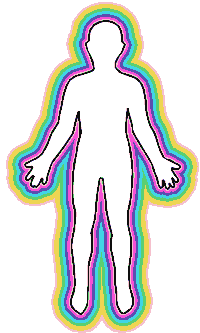
Body, Feelings, Mind, Epigenetics, Environmental Connection, Self-Regulation (See also Our Inner-Outer World & External, Social, Environmental Factors Of Loneliness - Relationship With Our Environment & Impact Upon Ourself) Epigenetics shows us the environment can shape and influence our genetic expression. (Conditions, such as chronic fatigue syndrome - CFS and Fibromyalgia - sometimes linked to our high sensitivity, may be influenced by epigenetics, where integrative medicine may support us.) Our emotions shape our biology and not only are we on an emotional, psychological journey and choice of expansion, contraction, but so too on a physical journey and acknowledging the distinctiveness of our body, feelings and mind yet interconnectedness of our health (e.g. that our feelings are the currency of our body) may support us. And it's not one-way, for not does the mind affect the body, but the body affects the mind. Some of us can be at a distance from our body, struggle to recognise our basic feelings in our body if we are tired, hungry, experience threat, conflict, anger, irritability, stress, trauma, shame, grief, loss, separation, feeling sexual - it can be as if we have fled our body (and this for some may indicate we numbed ourself). We may want to be present in our body with our feelings - embracing them as information to learn from, compassionately accepting them rather than judging them. We may want to be more in touch with our feelings, emotions - the sensations initially felt in our body, which have the potential to be a source of inner guidance, pointing to our intention, whether our situation is safe or unsafe and whether we (or others) are being loving or unloving to ourselves. Counselling, therapy may encourage you in paying attention to what's happening in your physical feelings and what keeps you safe in your body, gut feelings, senses (see also Feelings & Senses - Our Guide). In the therapy we may therefore benefit by not just focusing on our mind and the words we choose, but also tuning into what our body is telling us, because communication has a physical dimension, as our body responds to things that are stressful, or pleasing. We may also explore how the way we think impacts upon how our body feels - the body-mind link (see also Our Body's Interconnectedness To Our Thoughts, Emotions, Etc). We can be in good physical health and look after ourselves, yet our emotional & psychological pain (e.g. trauma, grief, heartbreak) or other emotions like our esteem plummeting, anger can feel stuck in our body, as if separate from our feelings and mind (yet changing our routines, habits can also introduce new muscle memory). Our thoughts (e.g. angry, shameful ones) produce angry, shameful emotions, which in turn produces physical feelings. In this body/feelings/mind loop, our body has physical reactions, tightness, tension, pressure or heaviness, which may carry symptoms of stress, fear, anxiety, sadness or depression, even the effects of our self-criticism, perfectionism, which can get held and expressed through our body. (How we respond to this body, feelings, mind connection may also influence any health anxiety or our unwanted habits, addictions in us.) We may find it hard to release body tension. We may be overly focused in our minds & not in our body, quite disconnected from it and our feelings, relationships, sexuality or spirituality. And when these aspects of us expand, (our general, physical, emotional, psychological, sexual, spiritual wellbeing) and are interconnected, regulated, balanced, we may sense, feel a synergy. Our body listens to us and what we tell ourself. Being mindful how we speak to it, respect it, appreciate it, are kind to it, impacts on our body. We may feel more energised when we give our mind space, nurture our mind, utilise our imagination. The body therefore responds to what our mind thinks and our body, emotions & mind with its images are intrinsically connected with biochemical counterparts leading to corresponding changes in our body influencing our health & wellbeing, so when tension is released in one area, it affects other areas. We may want to feel more connected to our body - anchored in our own ground, connected to our core through our breathing and fully alive, expressing our body vitality and connect with others. And when we feel fully alive, present in the moment, body (see also Physical Wellbeing - Being Well, Body Vitality & Breathing), feeling, mind working as one (where our body knows how to instinctively respond), we have a sense of wellbeing, in touch with our own momentum, passion, aware & responding to what energises us, supports our resilience. We can both identify and disidentify with aspects of ourself (our body, feelings, mind, sexuality, spirituality) and through disidentification, the counselling & psychotherapy can support us in knowing how we feel, clarifying and straightening our thinking, listening to & becoming sensitive to our body, so we are able to have presence & fluidity between doing and being, regulate our feelings. Engaging in mind-body practices, like qi-gong, yoga, can support inner harmony and balance, help promote both physical, emotional, mental and spiritual healing, wellbeing, integrate mindfulness, movement and breath work - all of which can support spiritual growth. Some have described our body as the home of our incarnated soul, and we may wrestle with the profound questions as to whether our soul resides in our body or whether body is central to the limitlessness of soul. Some of us, for example, in deep meditation may become aware that we - our Self - are not the body, we exist outside of the body as consciousness.
Health Anxiety For some of us health anxiety can be triggered because of recent or significant change in our life (this could include recovering from a serious illness, bereavement, becoming a parent, job loss, moving home - see also Body, Feelings, Mind, Epigenetics, Environmental Connection, Self-Regulation, being traumatised or witnessing others' health-related trauma). Other possible triggers can include media coverage of health conditions, overexposure to internet information, news bulletins. Frequently ruminating ("What if I or my doctor have missed something?") can compound our health anxiety. We may be scanning our body for symptoms, frequently researching online, which can compound our health anxiety which may turn into panic attacks or engaging in unhelpful habits or addictions. We can end up literally worrying ourself sick, so the therapy for health anxiety may also include exploration of any unhelpful, intrusive thoughts. Focused health anxiety counselling, may also include stress reduction, coping with uncertainty (especially if it's linked to fear of dying, death anxiety). The therapy can support us in recognising that our fears are invariably not a sign of serious illness and helps us re-build self-trust.
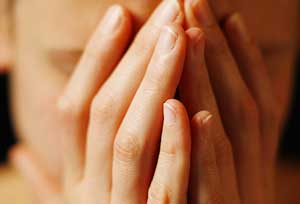
Low Energy, Depleted Energy, Lethargy, Tiredness & Fatigue, Exhaustion Lethargy, tiredness and fatigue affects us all at times (we can feel more irritable) especially when we are unwell, burnt out, are overly sensitive (or have qualities of an empath), procrastinate or feel low. It can be as if we experience "adrenal fatigue", "adrenal exhaustion" or "adrenal burnout". Yet alongside giving ourself space to rest and recover, there may be certain considerations which promote our self-healing. Having lots of mental energy can produce tiredness, fatigue. Sometimes we can push through exhaustion to do our day, and that can do the trick (helped by having power naps, avoiding unhealthy snacks, getting some fresh air or exercise - maybe gentle at first yet consistent, drinking plenty of water, listening to energising music and entertaining video clip). However other things may be going on inside. Tired (and tired of being tired can make us more irritable, as can boredom), we may have cut off from our feelings, hurt or pain. We may fear dying or death, struggle to open our heart, have a cloud of feeling hanging over us. (Some of our emotions may be repressed, suppressed.) What we tell ourselves and our self-judgements, criticisms may contribute to whether we feel energised (see also Our Painbody). The counselling therefore explores what drains our batteries. When we are tired, drained, with depleted energy, exhaustion or brain fog most of the time, it may also point to pushing ourselves too much, feeling overloaded, sleep factors or unhelpful sleeping patterns, lifestyle, our personal triggers & hooks, worries, preoccupations & attitude of mind, misplaced loyalties, oaths, sacred cows. Letting go of draining thoughts, and letting in thoughts that rejuvenate, revive us, can help us be more alert. Alongside talking about how we may give our energy away - leaking out of us, the therapy may also explore what we feed our mind with and what constitutes a healthy mind. (Our personal energy is a valuable resource and when we are aware of what is worth our energy, we are more likely to focus on things that add value to our life - energy that nourishes us, so we flourish.) Not taking breaks, resting, may also play a part and may compound low energy, tiredness, for where we put our attention, our energy flows. Making easy changes to our lifestyle and exploring what nurtures our body, mind and soul, what inspires us, may also be important. Certain habits, addictions, like technology, alcohol, overworking, may increase our tiredness. We may feel stuck, procrastinate, which saps our energy, as if waiting for change in our life. Our tiredness may also point to being caught in false beliefs, struggling to connect with truth, being authentic.
The cure of the part should not be attempted without treatment of the whole. No attempt should be made to cure the body without the soul. Let no one persuade you to cure the head until he has first given you his soul to be cured,Plato
for this is the great error of our day, that physicians first separate the soul from the body.
Our Painbody Sometimes the body just says "No". We all experience our painbody, though often unconsciously (as if we and others are carrying it and we and others pick it up) and are in contact with the painbody of others (again often unconsciously). The author Eckhart Tolle describes the painbody as a psychic parasite that contaminates, possesses us (e.g. as if something bad is going to happen) by catastrophising, awfulising, causing us suffering, that everyone is infected to some extent through the accumulated pain of our past living on as a negative energy field occupying our mind and body's cells and this may include carrying any primal wounds. Our painbody can be experienced as a shadow aspect of ourselves (often carrying unhelpful habitual thinking patterns, negative thoughts), an emotional part of our wounded self, which may also be connected to our early bonding patterns and influencing our relationship style now. Alongside physical pain, illness, our painbody may carry origins of fear, shame, frustration, unexpressed anger, disappointment, depression, grief or play a central role in us turning towards unhelpful habits or addictions (for the pain itself can be additive). Our painbody may consist of our own thoughts, old emotional pain or traumas, repetition compulsion living or locked inside us - an accumulation of experiences, repressed or suppressed emotions, not fully faced and accepted in the moment they arose, leaving behind an energetic form of emotional pain or hurt - an entity consisting of old emotion. Our painbody may lay dormant for some time, then awaken, deriving energy from pain (ours or others') as its source of fuel. Our painbody can be experienced as an unseen force of momentum causing us to unconsciously seek pain time and time again. (And if we are not conscious of our painbody, it can become a form of self-sabotage, especially when powerful feelings, which happened long time ago, suddenly affect us now.) Brushing our feelings under the carpet (especially our so called negative feelings, negative emotions), carrying our painbody around with us, caught unawares, it is as if the energy (maybe almost primal) of our painbody surges through us at certain times, having a separate life of its own - "Where did that come from?" may be our (or others') response on reflection - see also Early Destructive Relationship Patterns (this for some can be connected to intellectualising our parents' imperfections, yet carrying unexpressed anger). On other occasions we are aware of the feelings, thoughts, behaviours of our painbody, almost compelled - watching ourselves doing what we are doing and we can carry this painbody part of us around with us as if proudly - martyr-like. Holding back our tears, the internal dialogue from our painbody (see also Our Body's Interconnectedness To Our Thoughts, Emotions, Etc producing Physical Feelings, Somatic Reactions, Other Reactions) may become the dominant negative voice, depleting our energy as we feel more anxious. Yet our painbody reactions may also point towards what negative emotions we continue to hold on to, what needs letting go, healing and what's missing in our life, which can be explored in counselling and psychotherapy. (See also Unwell, Physical Pain, Physical ill Health)
Painbody Examples, Experiences In Relationships In relationships, if inside we feel we are no good, fear rejection, abandonment, we may set this up by making ourselves rejectable (see also What Is Transmitted, What We Attract, Repel). The painbody not only feeds on our thoughts, but also feeds on other people's reactions. And it is often in close relationships that painbodies collide, feeding off each other, provoking each other, knowing exactly what will trigger a negative response, thriving on drama (often on meaningless things that have cropped up time and time again). We can sometimes recognise our painbody at the beginning of an argument, as we start to be unkind to someone, half knowing this will lead to conflict, watching this happen as the painbody runs its course. After the conflict, it is as if our painbody has fed itself and reverts back to sleep mode. (Some may space out, freeze, as if we are only locked into the present moment.) When in our painbody, opening our heart to others - even when things are difficult may be our challenge. Sometimes all we can do is be present with our own painbody. In other situations it might be better to walk away instead of engaging in conflict or useless arguments, yet remain present, feeling the life that resonates from our physical body - open to our surroundings and others, trusting our innateness, groundedness, inhabiting our body, connected to our personal boundaries, alert and awake to "what is", in the moment, giving space to it, open to the energy of love.
Responding To The Energy Of Our Painbody Being in touch with our painbody, recognising this when this shifts from being frozen - see also Fleeing Our Body (old traumas may play a part), dormant to active when triggered may support us (see also Physical Feelings, Somatic Reactions, Other Reactions). Spotting the first signs as our painbody becomes triggered, giving space to it can be helpful before it takes us over, so we take responsibility for our experiences, stop its escalation, as we remain conscious of it. We may have got used to emotional pain, tension rather than believing we can heal, reduce, or dissolve it, yet if we are present, observing our painbody, witnessing it, its energy can decrease. Changing our thinking and emotional patterns can help dissolve the power of our painbody. We may have bypassed our feelings. Feeling our core painful feelings without acting them out, finding our way through pain, can be challenging. The counselling can help support us with our feelings and physical responses to them (see also Feeling Safe In our body - Connecting To Our Centre), explore ways of managing, regulating our emotions, core painful feelings, what soothes us, gives us boundaries as we notice and regulate our energy, peace of mind and how we can live our life to our full potential, create a different future. Sometimes there may also be a psychological need for health anxiety therapy, and this can be offered.
If you can't fly then run,Martin Luther King Jr.
if you can't run then walk,
if you can't walk then crawl,
but whatever you do
you have to keep moving forward.
Caring For Someone Unwell, ill Supporting others is important, yet if it leaves us feeling exhausted, we may need to set boundaries protecting our energy. Taking a good care of ourself makes us better able to support others. For those of us who care for others, our own feelings (especially difficult, sometimes intolerable feelings) may be unheard, unexpressed. and it can seem cruel or punishing if we share some of these feelings with the person we are caring for. Identifying and communicating our needs may be important. Sometimes when these are shared appropriately, this can increase intimacy and empathy between each other, strengthening the relationship between us and them. When we are caring, kind, compassionate to others who are vulnerable, we may notice our body may soften (as do our eyes when we look directly at others), relaxes, our breathing may deepen and we may turn our whole body, calmly leaning towards the person we are caring for.
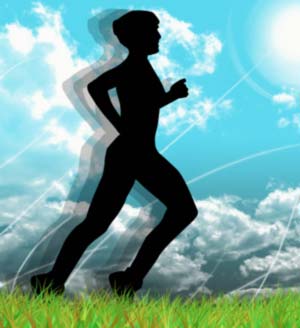
Physical Wellbeing - Being Well, Body Vitality & Breathing Valuing, respecting and looking after our body, our physical sensations may be a priority for us and when we are well, this underpins our resilience. Many of us have familiar times of the day, when our energy levels rise and fall, affecting our focus & attention. On a continuum, at times we can feel stuck in our head, drained, burdened, exhausted, collapsed or frozen in our body, living life mechanically, as if we are just existing, yet other times be full of vitality, wide awake, buoyant and joyous, sexual, fully living, supported by being in elevated moods, moving our body, being in the moment, as if more a free spirit. What keeps us in touch with our inner flame, in good spirits, what we do with our energy, protecting & utilising our personal power, how we consistently stay energised, stepping away from routine may matter to us. We may feel more energised when we rid ourselves of our unhelpful habits, addictions, false beliefs, energy-sapping cynicism, sarcasm. Regaining, recovering our energetic source of energy, strength after using it may be important to us, as may becoming aware of our inner strength, how we sense things. Being safe enough, in touch with what revitalises us and the naturalness of breathing - being with our breath, knowing it's safe to breathe without holding our feelings in ( or numbing them), allowing our breathing, breathwork, to be a source of strength, energy when we take a few soft, slow, gentle, calm breaths to and from our belly (not hollow breathing, which tends to indicate we're suppressing/repressing emotional pain), utilising our breathing as barometer for how we're feeling supports us (see also Body Awareness - Connecting To Our Core, Supported By Our Breathing). What we resonate with, noticing our energy (Chinese culture speaks of this as our chi, qi, ki), what personally makes us lighter, brighter, allowing for spontaneity, surprises, anchoring ourselves, can also be explored in the therapy. We may experience our vitality, aliveness through our vulnerability (opening to our core pain, suffering of life can paradoxically enliven us), exercise, sexual union, emotional connection and sharing of interests, being in touch with supportive others (see also In Tune With Us, Community & The Wider World, Our Interdependence, Interconnectedness, Oneness, Unity, Harmony), where we don't feel drained in their company and can emotionally connect with them, share love, open our heart, be in touch with truth. This helps create our openness, aliveness, enthusiasm, joy and life passion, alongside being in touch with our feelings and innocence of childhood. When we experience the inner flame of our vibrancy, vitality, it can be as if nothing is too much trouble, that we have time to fit things in, we are in the zone, can be more creative, with momentum through fluid actions in our movements. For some this may be a place of transformation. Enhancing what rejuvenates us may be important. Content or carefree, our light-heartedness, laughter & sense of humour may increase, and this in turn enlightens, energises our body, spirits. Having faith in all of who we are, having an intent to love ourself and others, being creative, curious, allowing for the unknown, unpredictable, being spontaneous, surprised & surprising, seizing the day, doing what is pleasurable, simply savouring the pleasure of living can also boost our vitality, dynamism, especially if we are in touch with what inspires us and we share our interests. Being vibrant, in touch with our purpose, vitality, desire, passion (which draws us into our body, not our head) can give us energy to do things, support our happiness, generosity, acceptance. Contact with nature supports our vitality. Some of us may only seem to come alive from our sexual energy (see also Energy Of Love - Being In Touch With A Real Love). How to be with and creatively respond to our sexual vitality may be challenging (see also What Is Transmitted, What We Attract, Repel). The counselling and psychotherapy can explore what deadens us, enlivens us (see also Internal Interconnectedness - Connecting Consciousness To Our Past, Present, Future, Sensing Our Aliveness, Space Beyond Us), including the impact of the conscious and unconscious self, our external environment around us, how our psychological wellbeing (which is connected to yet not be the same as our physical health) emotional experiences, inner child, teach our body and how we can create a new future envisioning this and as we do so invite our body to change. (See also Body, Feelings, Mind, Epigenetics, Environmental Connection, Self-Regulation).
“Everyone who terrifies you is sixty-five percent water. And everyone you love is made of stardust, and I know sometimes you cannot even breathe deeply, and the night sky is no home, and you have cried yourself to sleep enough times that you are down to your last two percent; but nothing is infinite, not even loss. You are made of the sea and the stars, and one day you are going to find yourself again.Finn Butler
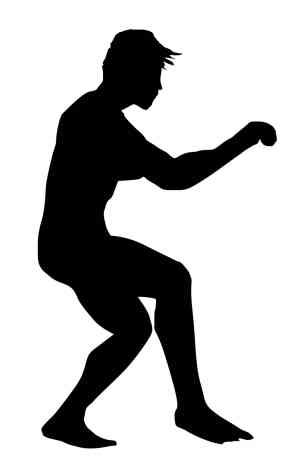
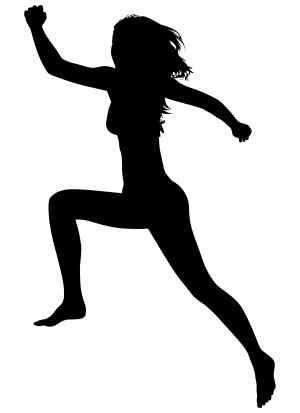
Movement, Fitness & Exercise Linked to our emotions, sometimes we can feel low, frozen, stuck in life or stuck in our head and when in touch with our momentum, this can help engage our will. Moving our body (adapted to our level of fitness) challenging ourself physically (without striving) so our blood flows a little faster can shift our perspective provide clarity, enabling us to feel our sensations, be closer to our (e)motions - energy in motion and depth of feelings as we move. And talking, sharing our emotions with others can be a "moving" experience - moving our emotions. How and whether we exercise can be determined by beliefs that it is to be embraced or endured (we may hold some fears, judgements). Yet when we do exercise, it supports our vitality, elevated moods, arouses our senses, connects us with others. Adapting our expectations, finding what exercise suits us, which ones our body looks forward to, choosing something we enjoy, making it fun, boosts our motivation (some prefer accompanying music, some don't). Starting off too hard and pushing ourself over the 70% barrier may put us off if we go for large, unmanageable quantities of exercise. We may want to experiment, finding the right movements, stretching ourselves and exercise, whether inside or outside (maybe in nature), slow, medium or quick , on our own or in a group, in classes (where friendships and accountability may be present). We may want to discover what movements, exercise, speaks to us, whether through the process of gardening, housework, walking, running, dancing, roller-skating, trampolining, racket sports, swimming, yoga, tai-chi, gymnasium, etc. And we may want to explore how we can participate with any enlivening enjoyable movements and exercise, connected to our vitality. Yet, motivating ourselves to exercise can be challenging and the benefits may not be instant - it can often take 4 or 5 times before we feel the good effects in our body. And the following Paul Cavel quote goes some way to addressing this: "It has got to come from within. All you have to do is start by becoming present to the moment and continue on - without projecting into the future or holding on to the past", so not looking ahead too far, establishing reachable milestone, can support us, as can imagining what it means to get to the end of our exercise. Building mental resilience alongside emotional resilience can be just as important as physical resilience. Resting our body enough may also be important.
FAQs about the Counselling London practice based in Kings Cross, Camden:
- What is the frequency of counselling in London, Kings Cross?
- How many counselling in London sessions do I need?
- How much does counselling London cost?
- Must I visit your London counselling practice in Camden or do you offer Skype counselling, online counselling or Telephone counselling?
- What are the advantages and disadvantages of offering online counselling, Skype counselling or in-person counselling in London, Camden, Kings Cross
- Do you only offer counselling in London, Camden or Kings Cross?
- What times do you offer counselling in London, Kings Cross or Camden?
- How do I contact a counsellor in London, Camden, or near Kings Cross?
- How effective is counselling in London, Kings Cross, Camden?
- What can I expect from the initial session of counselling London?
- What to expect from the other counselling London sessions?
- What is the typical duration of the London counselling services in Camden, Kings Cross
- How long does body issues counselling last?
- What happens in counselling for body issues?
- Do you offer counselling for body image?
- In body image counselling how many sessions can I expect?
- Can counselling be helpful with the symptoms of menopause?
- Is there a counselling for menopause?
